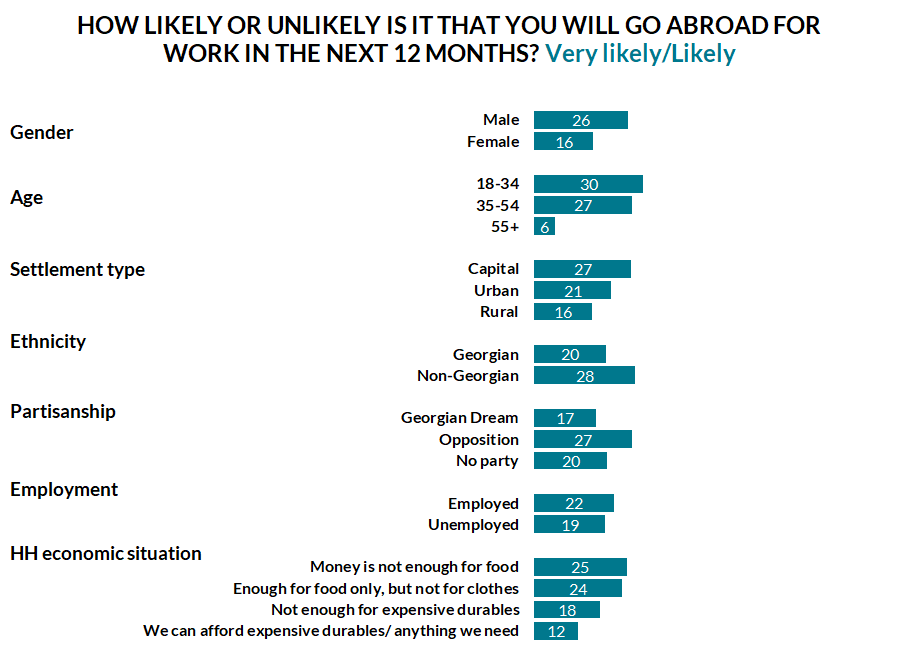Note: This article first appeared on the Caucasus Data Blog, a joint effort of CRRC-Georgia and OC Media. This article was written by Elene Ergeshidze, a Researcher at CRRC-Georgia. The views expressed in the article are the author’s alone and do not reflect the views of CRRC Georgia or any related entity.
CRRC data suggests that every fifth person was considering leaving Georgia for work in 2023, with men, younger people, people with poorer economic standings, and supporters of the opposition reporting that emigration is a better option than staying in Georgia.
Emigration has become a hot topic in everyday discourse in Georgia; the media is rife with stories about people who have decided to leave their jobs and families in search of better opportunities in the West, with many migrants taking significant risks through illegal emigration to Mexico in search of the American Dream.
Data published by Mexico indicates that 9,468 Georgians crossed the border between 2021 and 2023. A recent report from Georgia’s National Statistics Office shows that 125,269 people emigrated from Georgia in 2022, the vast majority of whom were Georgians. This is a 25.3% increase compared to statistics from 2021.
Data from CRRC and NDI’s regular surveys suggests that a significant share of the public was considering migrating for work in 2023.
The survey, conducted in December 2022, showed that every fifth person in Georgia reported that it was very likely (3%) or likely (16%) that they will go abroad for work in the next 12 months.
The data show that a number of groups are more likely to be considering migrating for work than others.
Men are ten percentage points more likely to report they are willing to go abroad for work than women, controlling for other factors.
After controlling for other factors, a quarter of the people in Tbilisi (27%) are considering emigrating abroad, compared with one in six residents of other urban (21%) and rural areas (16%).
Ethnic minorities were eight points more likely than ethnic Georgians to be interested in emigration.
Opposition supporters are ten percentage points more likely to be interested in migrating abroad for work than Georgian Dream supporters, controlling for other factors.
When it comes to economic factors, those who reported that their household either doesn’t have enough money for food or is only able to buy food but not clothes were more likely to report wanting to emigrate than those who are better off.
There was no statistically significant difference between employed and unemployed people in terms of migration interest.

Despite the difficulties associated with emigration, many people see going abroad for work in 2023 as a better option than staying in Georgia. This applies especially to men, younger people, residents of Tbilisi, ethnic minorities and those who report having poorer economic standing. Time will tell how this attitude will be reflected in actual migration statistics.
The data used in this post are available here.
